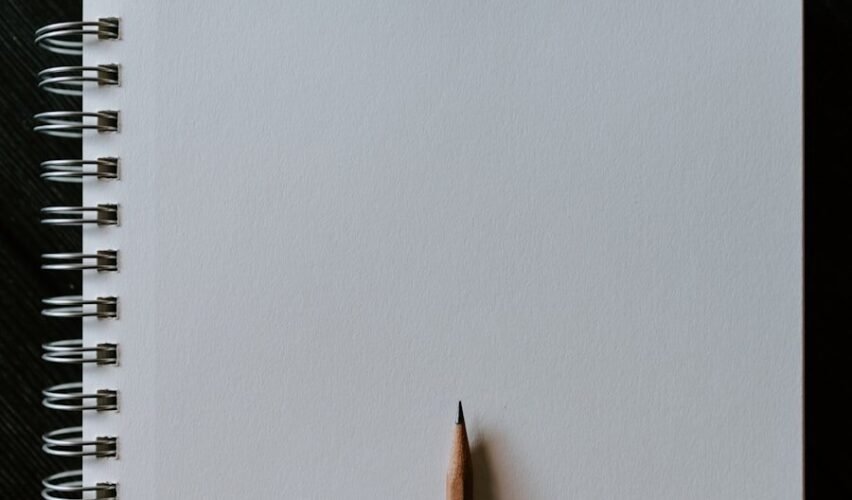Daily journaling is a practice that has been around for centuries, with people from all walks of life using it as a tool for self-reflection, organization, and creativity. The act of putting pen to paper and documenting your thoughts, feelings, and experiences on a daily basis can have a profound impact on your overall well-being. Whether you’re looking to boost your productivity, tap into your creativity, or simply gain a better understanding of yourself, daily journaling can be a powerful tool to help you achieve your goals.
Benefits of Daily Journaling for Productivity
One of the key benefits of daily journaling is its ability to boost productivity. By taking the time to write down your thoughts, goals, and to-do lists, you can gain clarity and focus on what needs to be accomplished each day. Journaling can also help you track your progress and identify any patterns or habits that may be hindering your productivity. Additionally, the act of journaling can serve as a form of mental decluttering, allowing you to clear your mind and prioritize tasks more effectively.
Another benefit of daily journaling for productivity is its ability to serve as a tool for time management. By setting aside dedicated time each day to journal, you can create a routine that helps you stay organized and on track with your goals. This can be especially helpful for those who struggle with procrastination or feeling overwhelmed by their workload. By breaking down tasks and setting realistic deadlines in your journal, you can create a roadmap for success and hold yourself accountable for completing tasks in a timely manner.
Benefits of Daily Journaling for Creativity
In addition to boosting productivity, daily journaling can also have a profound impact on your creativity. By taking the time to write freely and without judgment, you can tap into your subconscious mind and explore new ideas and perspectives. Journaling can serve as a form of brainstorming, allowing you to capture fleeting thoughts and inspirations that may otherwise be forgotten. This can be especially beneficial for those in creative fields such as writing, art, or music, as it provides a space to experiment and develop new concepts.
Furthermore, daily journaling can help you cultivate a sense of mindfulness and presence, which are essential components of creativity. By taking the time to reflect on your experiences and emotions in your journal, you can gain a deeper understanding of yourself and the world around you. This heightened awareness can lead to new insights and connections that can fuel your creative endeavors. Additionally, the act of journaling can serve as a form of self-expression, allowing you to explore your thoughts and feelings in a safe and private space.
How to Start a Daily Journaling Practice
If you’re interested in starting a daily journaling practice, there are a few key steps you can take to get started. First, it’s important to choose a journal that resonates with you and feels comfortable to write in. Whether you prefer a traditional notebook, a digital journaling app, or even a bullet journal, finding the right format for your needs is essential. Next, set aside dedicated time each day to journal, whether it’s first thing in the morning, during your lunch break, or before bed. Creating a routine will help you stay consistent with your practice and make it a natural part of your daily routine.
When it comes to the content of your journal, there are no rules or limitations. You can write about anything that comes to mind, whether it’s your thoughts and feelings, goals and aspirations, or simply a recap of your day. The key is to write freely and without judgment, allowing your thoughts to flow onto the page without overthinking or censoring yourself. Finally, consider incorporating prompts or exercises into your journaling practice to help spark creativity and self-reflection. This could include writing prompts, gratitude lists, or even drawing or doodling in your journal.
Tips for Effective Daily Journaling
To make the most of your daily journaling practice, there are a few tips you can keep in mind. First, consider setting specific goals for your journaling practice, whether it’s to improve productivity, cultivate creativity, or simply gain a better understanding of yourself. Having a clear intention for your journaling can help guide your writing and keep you motivated to continue the practice. Additionally, consider using your journal as a tool for self-care by incorporating mindfulness exercises or gratitude practices into your writing.
Another tip for effective daily journaling is to stay consistent with your practice. While it’s natural to have days where you may not feel like writing or struggle to find the time, making an effort to journal regularly can help you stay committed to the practice. Consider setting reminders or creating a dedicated space for journaling to help make it a natural part of your daily routine. Finally, don’t be afraid to experiment with different styles of journaling to find what works best for you. Whether it’s stream-of-consciousness writing, bullet journaling, or visual journaling, finding a format that resonates with you can make the practice more enjoyable and fulfilling.
Using Daily Journaling to Set and Achieve Goals
Daily journaling can be an effective tool for setting and achieving goals in all areas of your life. Whether you’re looking to advance in your career, improve your health and wellness, or cultivate new hobbies and interests, journaling can help you stay focused and motivated on your aspirations. One way to use journaling for goal-setting is to write down specific, measurable goals that you want to achieve within a certain timeframe. This could include professional milestones, personal development goals, or even small daily habits that you want to cultivate.
In addition to setting goals in your journal, consider using it as a space to track your progress and reflect on any obstacles or challenges that may arise along the way. By regularly reviewing your goals and noting any setbacks or successes in your journal, you can gain valuable insights into what is working well and where adjustments may need to be made. Furthermore, consider using your journal as a space to visualize your goals through writing or drawing out your aspirations in detail. This can help solidify your commitment to achieving them and keep them at the forefront of your mind.
Incorporating Daily Journaling into Your Daily Routine
To make daily journaling a natural part of your daily routine, consider incorporating it into specific times or activities throughout the day. For example, you could set aside time each morning or evening for journaling as part of your self-care routine. Alternatively, consider using journaling as a way to reflect on specific experiences or events throughout the day, such as after a workout or before bed. By tying journaling into existing habits or activities, you can make it easier to stay consistent with the practice.
Another way to incorporate daily journaling into your routine is by using it as a tool for reflection and planning. Consider using your journal as a space to review your day and set intentions for the following day. This could include noting any accomplishments or challenges from the day, as well as setting specific goals or tasks for the next day. By making journaling a part of your daily planning process, you can gain clarity and focus on what needs to be accomplished each day.
In conclusion, daily journaling is a powerful tool that can have a profound impact on productivity, creativity, goal-setting, and overall well-being. By incorporating daily journaling into your routine and staying consistent with the practice, you can gain valuable insights into yourself and the world around you while staying focused on achieving your goals. Whether you’re new to journaling or have been practicing for years, there are endless possibilities for how this simple act of writing can transform your life.




















